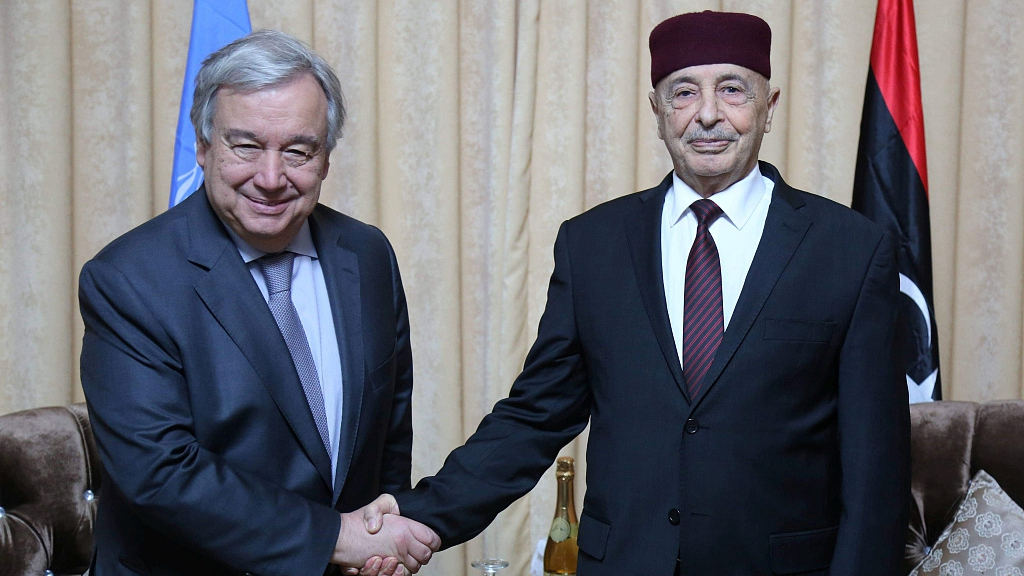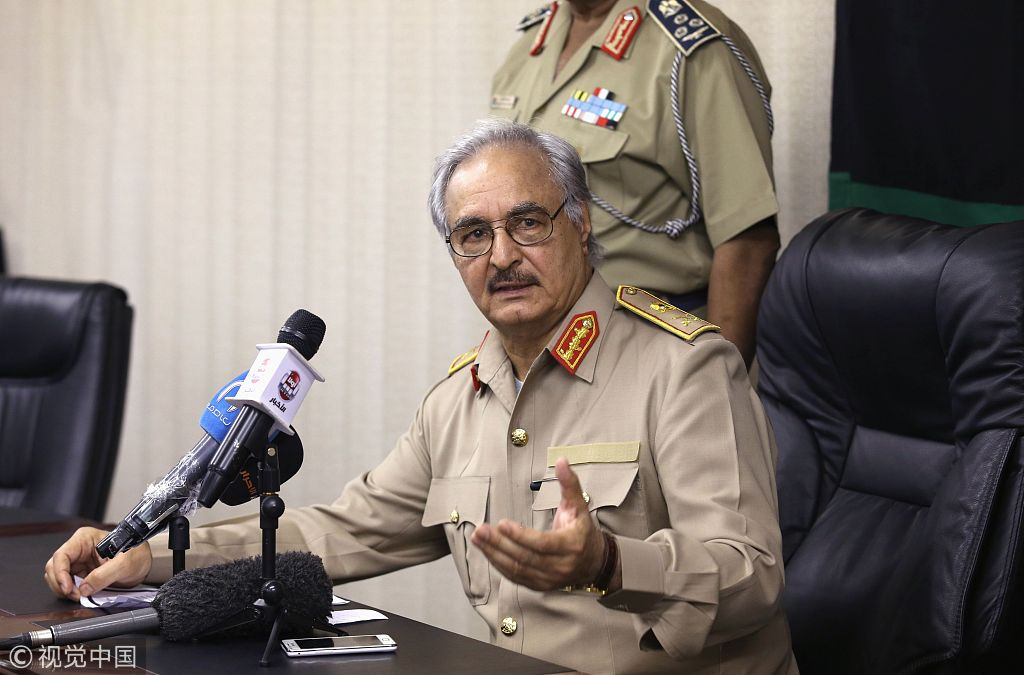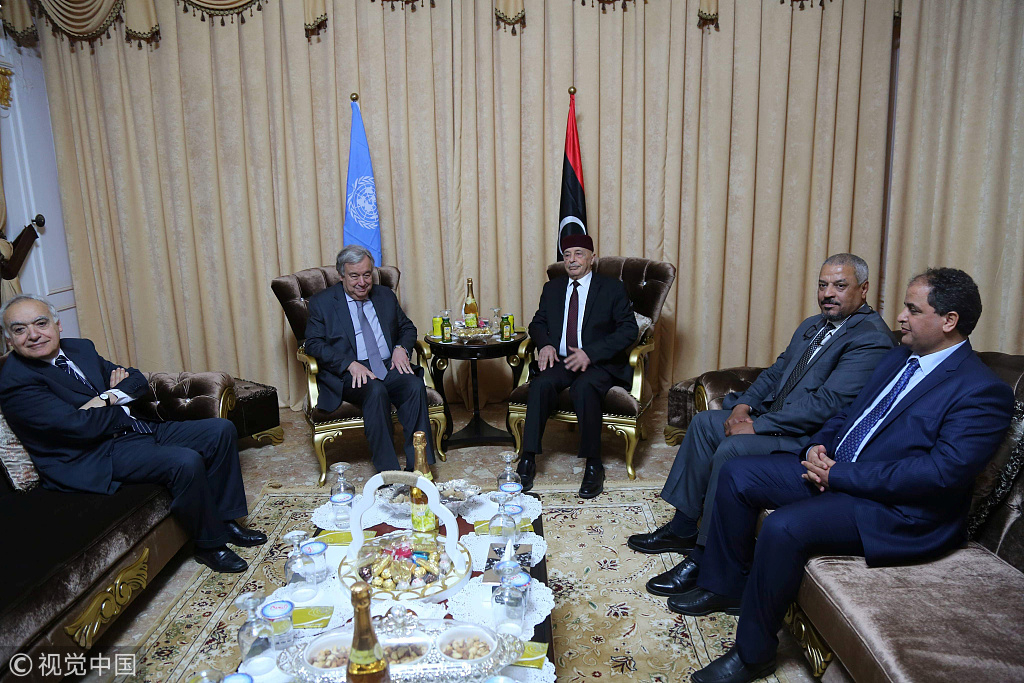
Middle East
13:23, 07-Apr-2019
UN to hold Libya conference as planned despite surge in fighting
CGTN

The United Nations is determined to hold Libya's national conference on possible elections on time despite eastern forces' advance on the capital Tripoli in an escalation of the conflict, a senior UN envoy said on Saturday.
G7 foreign ministers warned eastern Libyan military commander Khalifa Haftar to halt his thrust on Tripoli, menacing the internationally recognized government based there, or face possible international action.
Haftar's Libyan National Army (LNA) said on Friday its forces had advanced into the capital's southern outskirts and taken its former international airport. Its spokesman Ahmed Mismari said 14 LNA troops had been killed so far.
The offensive by the LNA, which is allied to a parallel administration based in the main eastern city of Benghazi, intensifies a power struggle that has fractured the oil-producing country since the 2011 overthrow of Muammar Gaddafi.

General Khalifa Haftar sat himself up as a warrior against Islamist militancy. /VCG Photo
General Khalifa Haftar sat himself up as a warrior against Islamist militancy. /VCG Photo
The United Nations aims to stage a conference in the southwestern town of Ghadames April 14-16 to weigh elections as a way out of the country's prolonged factional anarchy, which has seen Islamist militants establish a toehold in some areas.
Ghassan Salame, the UN special envoy to Libya, said he was striving to prevent the new crisis from getting out of control. "We have worked for one year for this national conference, we won't give up this political work quickly," he said.
"We know that holding the conference in this difficult time of escalation and fighting is a difficult matter. But we are determined to hold it on time unless compelling circumstances force us not to," he told reporters in Tripoli.
The Tripoli-based Prime Minister Fayez al-Serraj, who relies on various armed groups, said Haftar's move was a coup.
"He (Haftar) will find in us only steadfastness and strength from all those are coming from all over the country to defend Libyans' dream of a civil sovereign state," he said in a televised speech.

Aguila Saleh, Libya's parliament president, meets Secretary-General of the United Nations Antonio Guterres in Tobruk, April 5, 2019. /VCG Photo
Aguila Saleh, Libya's parliament president, meets Secretary-General of the United Nations Antonio Guterres in Tobruk, April 5, 2019. /VCG Photo
At a G7 meeting in France, German Foreign Minister Heiko Maas said he and his counterparts had agreed they must exert pressure on those responsible for the upsurge of fighting in Libya, especially Haftar.
Italian Foreign Minister Enzo Moavero Milanesi said the G7 statement "should be seen as an appeal to General Haftar to consider with a sense of responsibility peaceful solutions for stabilizing Libya under the UN umbrella."
Russia also called for restraint, saying Deputy Foreign Minister Mikhail Bogdanov told Haftar that Moscow continues to insist on a political solution to "disputed issues" in Libya.
Haftar told Bogdanov about what he described as efforts to fight terrorists in Libya, including near Tripoli, according to the Russian Foreign Ministry.
Haftar, 75, who casts himself as a foe of Islamist extremism, was quoted by Al-Arabiya TV as telling Guterres his offensive would continue until terrorism was defeated.
(Cover image: Antonio Guterres (L), secretary-general of the United Nations, shakes hands with Aguila Saleh, Libya's parliament president, Tobruk, April 5, 2019. /VCG Photo)
Source(s): Reuters

SITEMAP
Copyright © 2018 CGTN. Beijing ICP prepared NO.16065310-3
Copyright © 2018 CGTN. Beijing ICP prepared NO.16065310-3